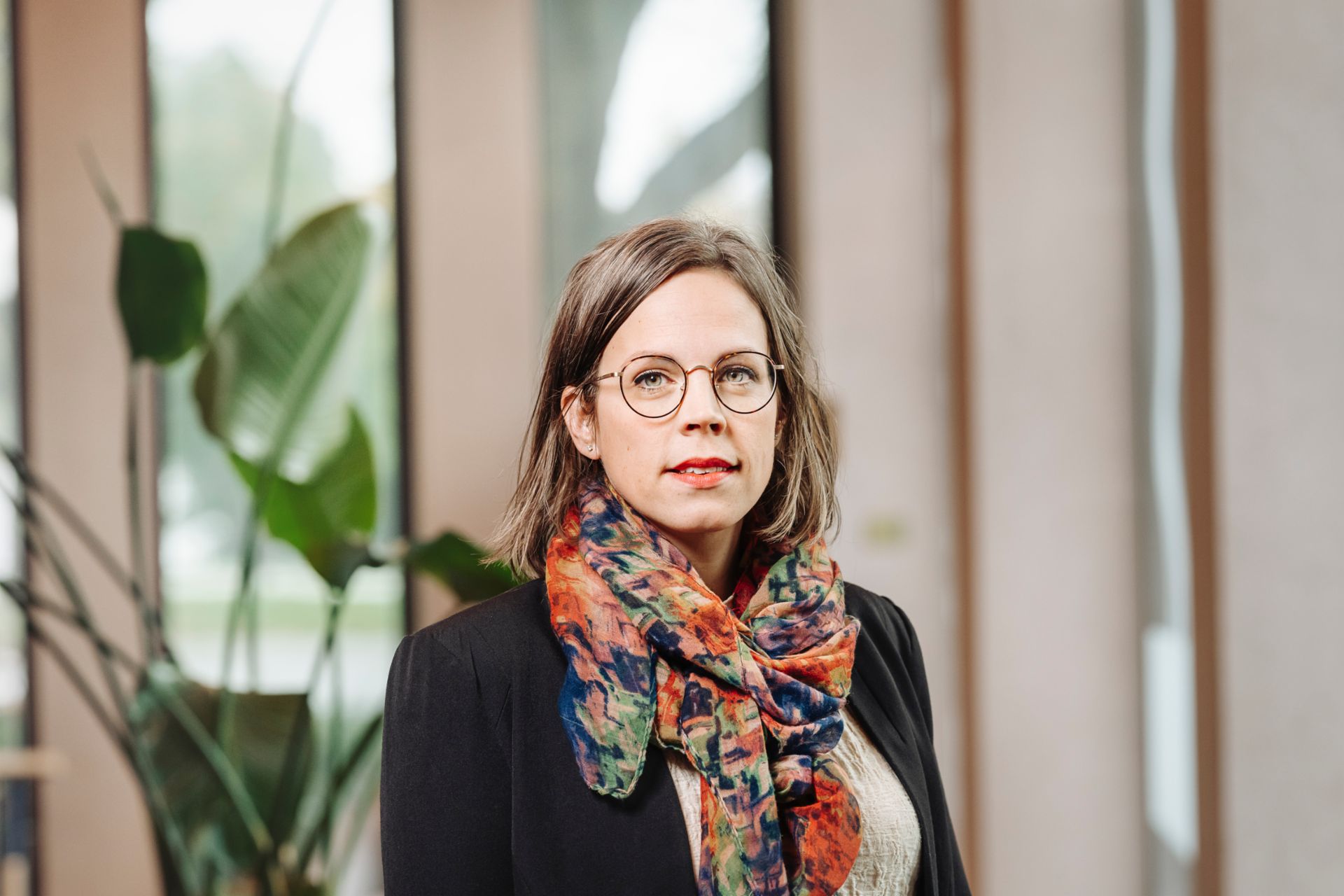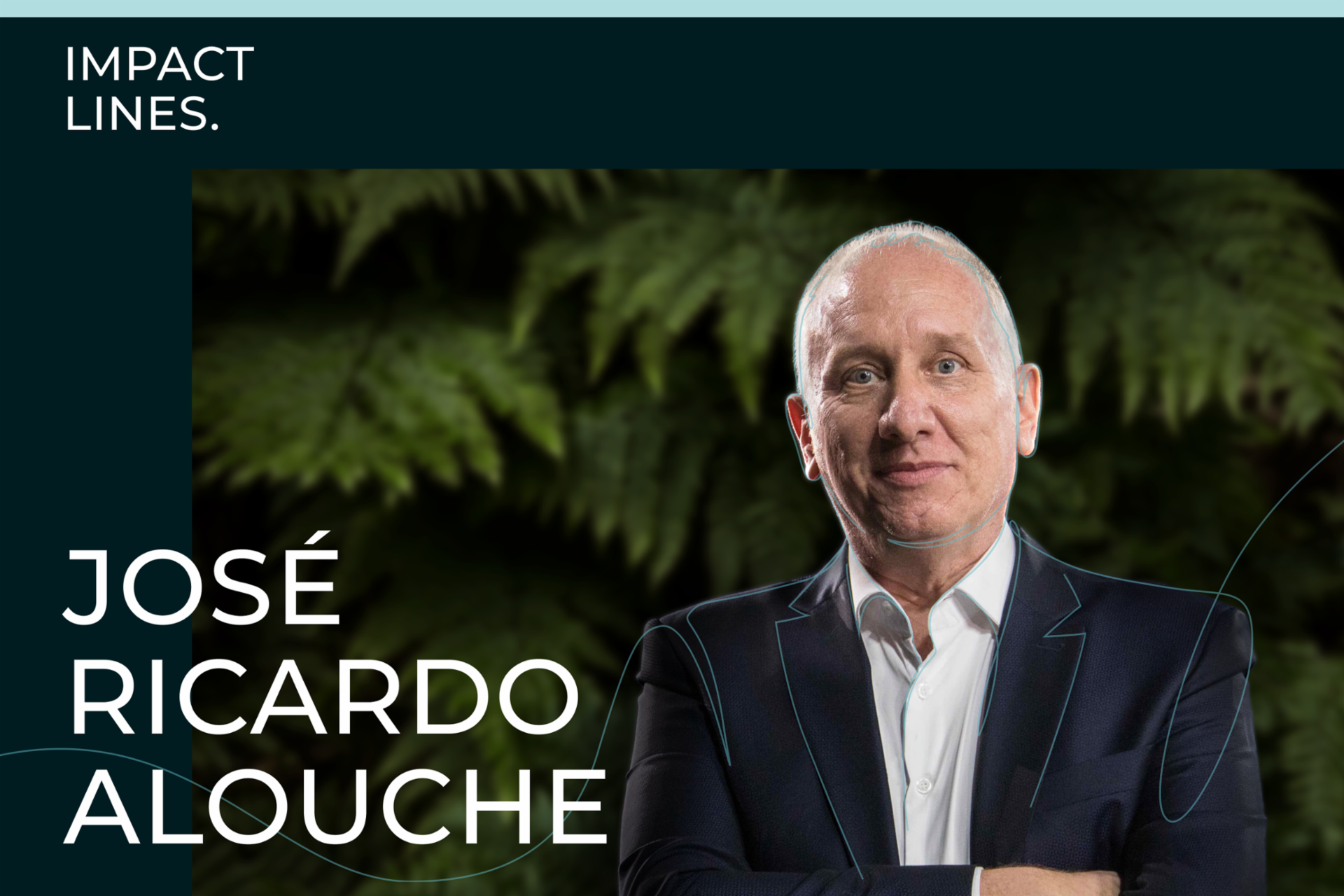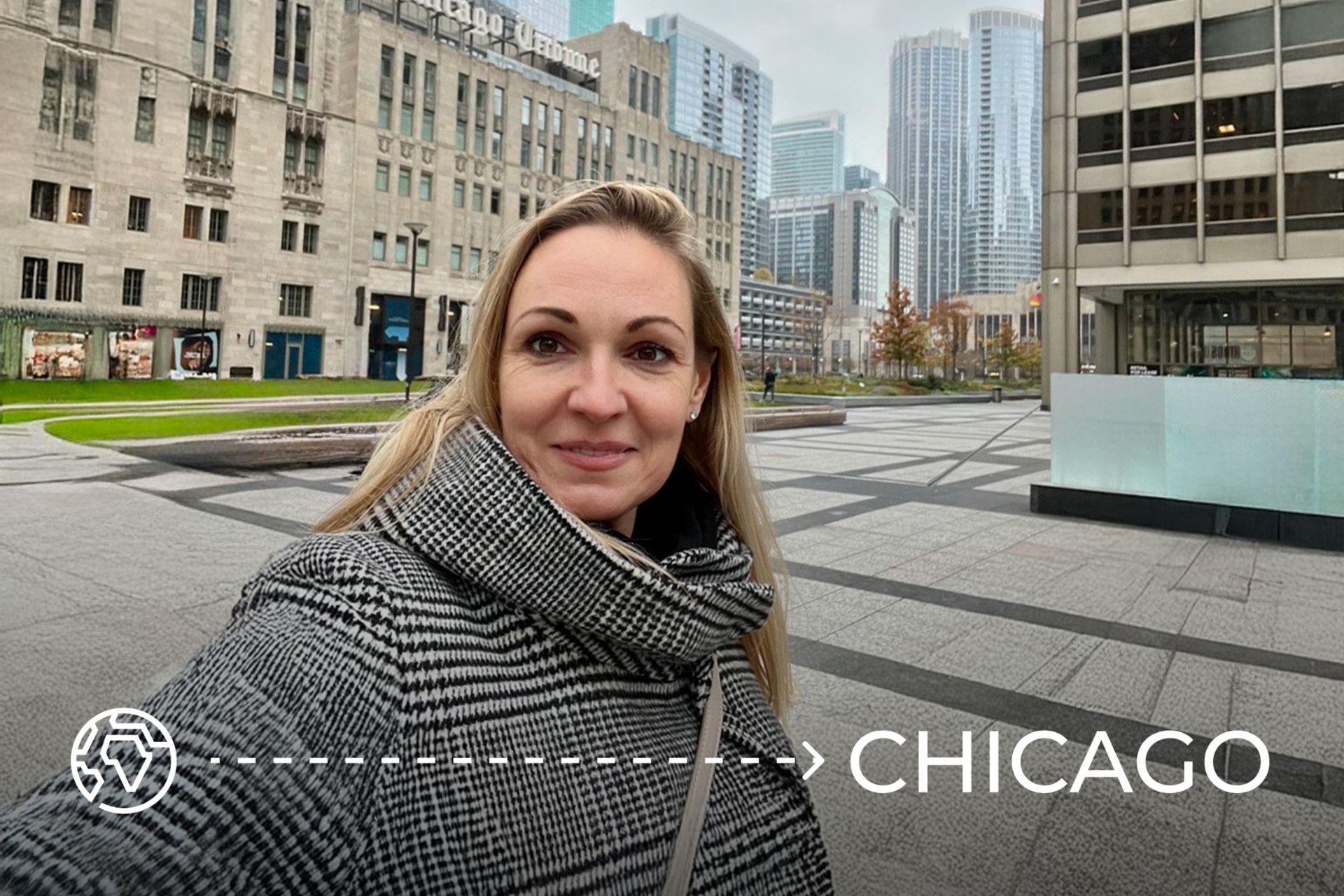Ms Mörtberg, as Industrial Engineering Manager at Scania Battery Production, you are responsible for commissioning the processes and overseeing the personnel in the new battery assembly unit in Södertälje. A gender ratio of 50/50 is the stated goal when filling the positions – how does the implementation of this quota work in practice? And is achieving this a big challenge?
I am responsible for the technical aspects in the production of the new battery assembly plant and am part of the plant management team. In this team, we have set a clear long-term goal together: we want to implement a strong vision of diversity in this project. A key element of this vision is gender equality. As diversity is a very broad term, we must work with other elements in this field as well. However, we strongly believe that focusing on gender will also open the doors for other aspects leading to diversity. For our corporate culture and the working atmosphere at the Södertälje site, it is crucial that all employees can contribute their individual skills and characteristics and that everyone can be themselves.
"Our vision of a 50/50 gender quota is a consistent, long-term goal. We have launched several initiatives to support ourselves on this path."Julia Mörtberg, Industrial Engineering Manager at the TRATON GROUP
To do this, we want to create a safe environment where we all develop, both as individuals and as teams. This way, we all make an important contribution, both to further develop our idea of diversity and to significantly improve our business goals. Because employees who can truly be themselves at work can fully develop their creativity.
Our vision of a 50/50 gender quota is a consistent, long-term goal. We have launched several initiatives to support ourselves on this path. While we have not yet reached our goal, we have made good progress at management level and have increased the share of women in our total workforce (33-34 percent overall and 43 percent among managers). But the important thing is that we are not looking for a quick fix: we want to steadily increase our figures for the share of women in the total workforce to reach a level where we can remain constant over a longer period of time. In contrast to the ‘standard’ in the industry with a female share of around 20 percent, Scania is on a very good path.
But there is still room for improvement...
Yes, that's right. I believe in a kind of snowball effect. Imagine walking into a room filled with people and realizing: this mix fits, this is where I feel comfortable, this is where I belong. That's how I see myself at Scania. And as Industrial Engineering Manager, I am also the one who can drive this development forward. We want a wide variety of people to feel comfortable at the TRATON GROUP and Scania.
The more diverse a team is, the more innovative and successful its ideas are – how important do you think this statement is? And does this statement coincide with your experience?
First of all: I fully agree with this statement. However, a diverse team is not a foregone conclusion, it also brings challenges: difference, open-mindedness and a broad spectrum of innovative thoughts create a certain pressure within the team. This is because with different aspects and experiences, very different opinions are also articulated – and this requires a very open dialogue and absolute transparency within the team. Managing these different currents and looking at the team as a whole requires a lot of attention. If we succeed in this balancing act and manage to ensure that all colleagues contribute in the best possible way – then we will be even more innovative and productive in the future and therefore more economically successful.
For all employees, regardless of their background, to feel included, appreciated – and for the team to actively work in a prejudice-free environment – it requires everyone’s full commitment. How does this work? What tools and programs are used to raise awareness?
In battery production at Scania, we work on a daily basis with a so-called work balance tool that orchestrates and enables open dialogue within our teams. This tool makes it easier to address any concerns or worries quickly and immediately – long before any potential problems arise. The aim is that team members will use the tool to open up about diversity in general and take the messages seriously and listen to their colleagues. All Scania divisions can use this dialogue tool.
We also have a team that focuses specifically on supporting our organizational processes and looking for ways to help teams become more efficient. For example, by working with ‘Skill Capture’ to develop diversity awareness in the company. The Skill Capture team organizes training and helps us to focus on how all colleagues can best contribute their skills. Already today, this heightened awareness has helped us to make better decisions in the interests of the company.
.jpg)
What support do you give to encourage young women in particular to continue their education in their technical or scientific profession?
We use several mentoring programs for both female employees and managers who are mentored by female employees at Scania. I like this concept very much as it enables dialogue between senior management and younger female employees in a very direct way. In my opinion, it is a very important orientation that women do not have to change, but that the perspective in management has to be broadened. Management must understand what strategies need to be developed in terms of corporate culture and leadership in order to inspire – and later retain – new talented female employees to pursue a career within the TRATON GROUP. Managers who participate in this program want to be coached by female colleagues so that they can actually make a difference in their field in the future. This program is called reverse mentorship.
What is the state of knowledge transfer? Is it something where younger and older colleagues can learn from each other?
To ensure successful knowledge transfer, it is important that everyone gets to know each other, and that each person knows who can help with address their queries or support them. For some time now, Scania has therefore had a special induction program for every newcomer, which helps new colleagues with onboarding. This also includes getting to know the work processes at various locations – for example, who does what in battery production and how logistics work. This knowledge provides starting points for successfully completing a common task with the help of different perspectives and competences. And then we are working on a support program that will help to promote the individual development of colleagues and therefore strengthen the competence of the entire team.
Why did you choose to pursue a career in industrial engineering and specifically in battery production?
At the beginning of my studies, I had no particular direction in mind. I found the education very interesting and that gave me the drive to also look for my first job in that field. Afterwards, I had the opportunity to develop myself further. I got new opportunities that led me to interesting tasks. Battery production is a new and very important area for our future growth, and that was one of many factors that sparked my interest in joining the team. The technology is one thing, but the clear vision of diversity and the opportunity to build a completely new organization in parallel was definitely an experience I wanted to have.
"I have often asked myself the question: Do I actually belong here? Today I can say of course I belong here, and so do all other women in this industry."Julia Mörtberg, Industrial Engineering Manager at the TRATON GROUP
What advice would you give to other women who want to enter or make their mark in the field of industrial engineering and battery production, despite the challenges posed by a male-dominated industry?
Firstly, women can contribute to the success of a company just as much as men. Therefore, it is important to encourage all women to get involved in this area. My tip for women is that they should seek support if they have concerns. There are many leaders at the TRATON GROUP, both women and men, who want to help shape this change. In my professional life I have often been ‘the only woman in the room’ and I have therefore often asked myself the question: Do I actually belong here? Today I can say of course I belong here, and so do all other women in this industry.
Are there any success stories or notable achievements that you are particularly proud of during your time so far? Can you highlight any specific initiatives or programs you have implemented to promote diversity and inclusion within Scania Battery Production?
Clearly, I am very proud of the team and what we have built within Industrial Engineering in battery production. And we have created a great team spirit. Of course, we also know that the technology is new and that we are, in a way, entering uncharted territory. We don't know everything, but our commitment and determination are very high. And we are ready to learn from other colleagues and from the development process of the new production structure. In the past six months, for example, we launched a women's network for all employees within battery production. I am very proud of the teams we have developed and of the individual employees in battery production. We have not yet reached our long-term goals on the topic of equality; but I think we have developed a basis where we can feel safe and where differences are accepted. We use our differences and help each other. That is what distinguishes our work. I think that both women and men will benefit from this development.
.JPG)
.jpg)

